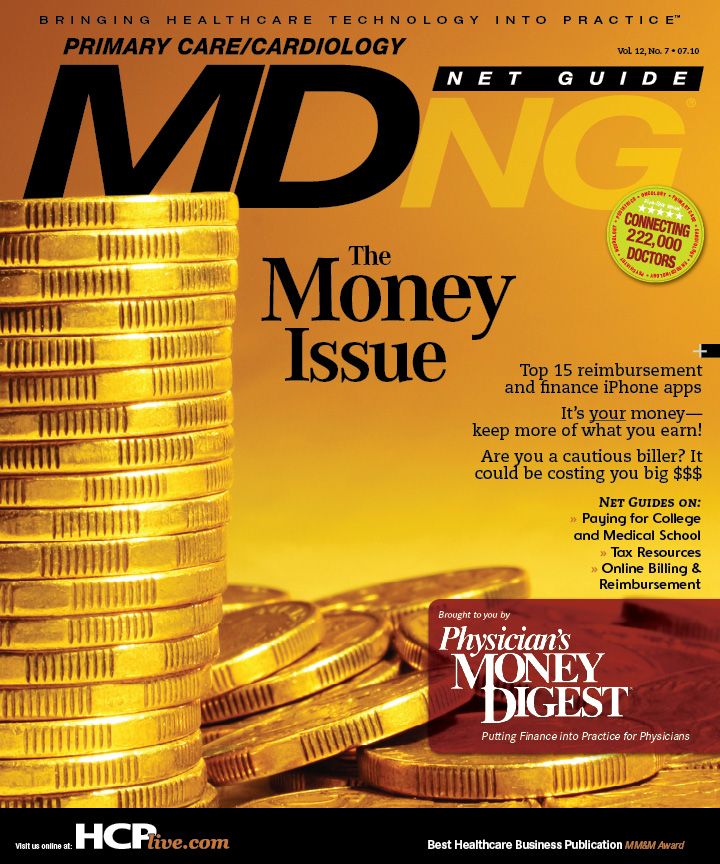Publication
Article
MDNG Primary Care
Tech Talk: The Dark Cloud Hanging over Web-based EHRs
Author(s):
Do unresolved issues surrounding performance, reliability, and security make data-intensive applications like EHRs poor candidates for the cloud?
Do unresolved issues surrounding performance, reliability, and security make data-intensive applications like EHRs poor candidates for the cloud?
The latest buzzword to make the transition from geek to mainstream is “cloud computing.” While I love the image of floating on a cloud as I type on my laptop, the rosy picture painted by cloud-computing supporters doesn’t quite match up with reality.
In practical terms, “cloud computing” means that your software applications and data are housed on a server somewhere on the Internet instead of stored locally on your PC or on a server in your ofï¬ce. Beneï¬ts of cloud computing include the fact that users can avoid some of the capital expenditures usually associated with computer use, because they basically rent a service from a third-party provider, instead of owning the physical infrastructure (servers, software, etc). Thus the phrase “Software as a Service” (SaaS) that is often used in conjunction with cloud computing.
Cloud computing is a hot concept in healthcare technology, with several companies offering cloud-based EHRs. However, I am clearly biased against cloud-based EHRs; my company, Amazing Charts, deploys a client/server EHR model (Allscripts-Mysis MyWay, AthenaHealth, and PracticeFusion are other examples of non-cloud-based EHRs).
Having said that, I believe there are several important issues that must be resolved before practices begin using cloud-based applications and storing their patient data remotely. Although cloud computing and SaaS sound good in theory, the reality is that with this approach (also sometimes referred to as an “on-demand” or “hosted” model), your patient charts and other practice information are only accessible if your Internet connection is working. Can you imagine if your ofï¬ce charts were locked up in a cabinet, and the person with the key was late or out for the day? An Internet service disruption would have signiï¬cant effects on productivity, especially for a paperless practice. I have had issues with my ofï¬ce Internet (goes down, goes slow) far more often than I have experienced a hard drive failure on my PC. Being at the mercy of the Internet—and my Internet Service Provider—as to whether I’ll have access to my patient records is not something I would personally accept.
Several users of cloud-based EHRs who have subsequently switched to a client/server EHR have told me that, even when the Internet is running ï¬ ne (which, in all fairness, is certainly the norm), they still experience signiï¬ cant delays waiting for screens to refresh when navigating from window to window. While this lag is not that noticeable when browsing the Internet, using a click-intensive EHR that exchanges a lot of data with the database can mean signiï¬ cant time wasted while waiting for screens to load. Users have reported frequent waits of as long as 20 seconds or more for the next window to load with updated information. Many EHRs (whether client/server or cloud-based) already have performance issues due to poor designs that require too many clicks; making users also wait for data to load over the Internet can make an EHR essentially unusable.
There are other potentially troubling issues with storing your patient data in the cloud, the most obvious being privacy. The cloud model is often criticized for the greater ease with which the companies hosting the cloud services can control and monitor (lawfully or unlawfully) data in the system. As physicians entrusted with sensitive patient information, we must be especially vigilant in this area.
Another issue is that your EHR will exist only so long as the vendor supports it. With most client/server software EHRs, if the vendor goes out of business, you can still start up and use your EHR. That is not the case if the data is in the cloud. For example, in June 2002, GE sent a letter to physicians using their Web-based Encounter EHR giving them just three months notice that their EHR would be shut down (read the news article at http://hcp.lv/9t4QfN). Users had to scramble to get their data out of the EHR and to ï¬ nd another system.
I believe that eventually most software applications will be hosted in the cloud. In the meantime, there are still unresolved issues surrounding performance, reliability, and security that make data-intensive applications like EHRs poor candidates for the cloud. Perhaps the most frustrating aspect is that the one clear beneï¬ t that theoretically makes cloud EHRs more appealing than their client/server cousins—the potential for lower costs—has also yet to be realized. In fact, most EHRs hosted in the cloud still charge ridiculous sums that can result in a doctor actually paying more for use of their cloud-based EHR than they would if owning the software outright.
Dr. Bertman is Physician Editor-in-Chief of MDNG: Primary Care/Cardiology Edition. He is a Clinical Assistant Professor of Family Medicine at Brown University and president of AmazingCharts.com, a leading developer of EHR software. He is also the founder and president of AfraidToAsk.com, a consumer website focusing on personal medical topics. He is in private practice in Hope Valley, RI.






